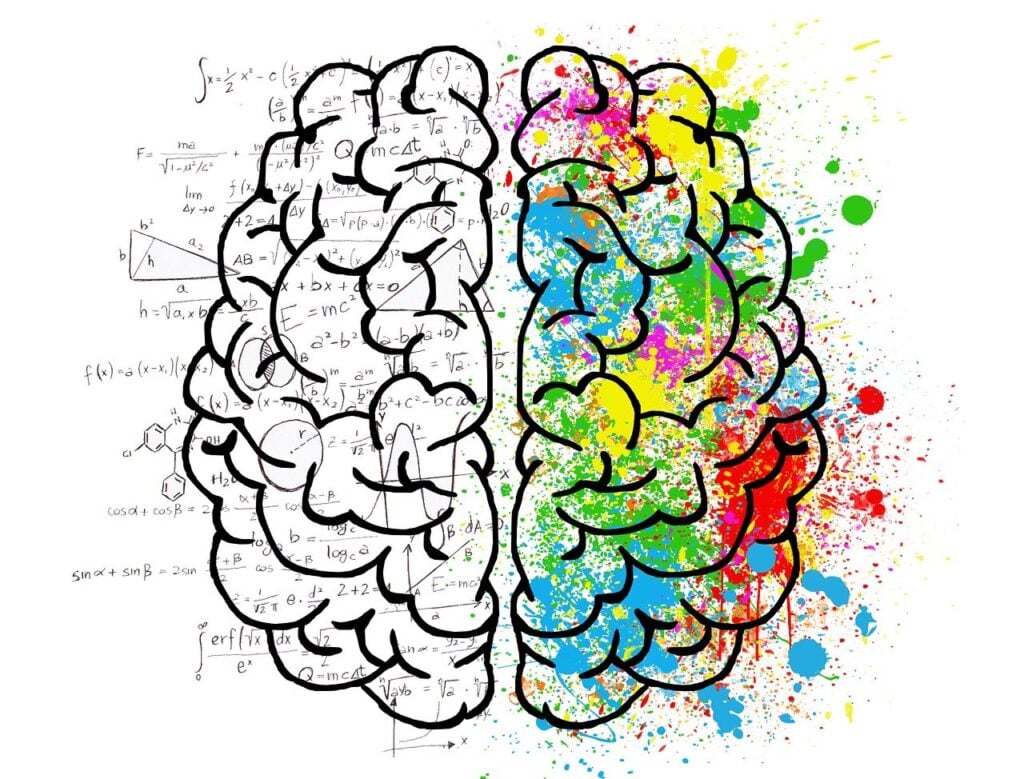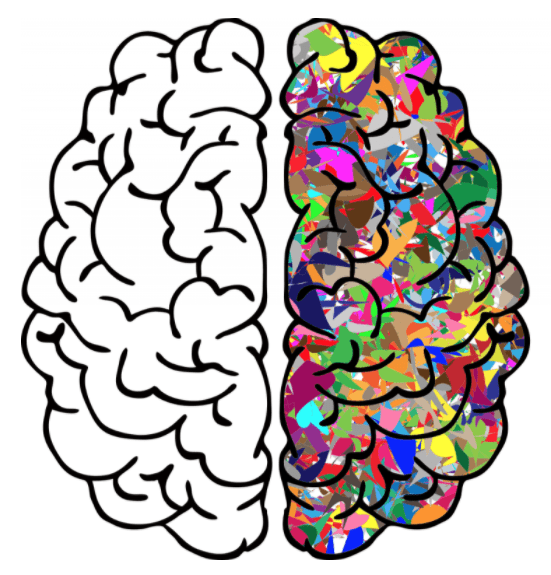Research into gut health, the microbiome, and “biotics” (prebiotics and probiotics) continues at an unprecedented rate as scientists discover benefits far beyond those in the more established areas of digestive and immune health.
In this guide, we will provide a thorough look at the research into the microbiome’s role in the brain-gut axis and its impact on mental health, including issues such as anxiety, depression, moods, and chronic fatigue. We’ll explain how different probiotic strains address different conditions, from digestive health to weight management and mental health. So, want to learn more about the brain-gut axis? Let’s dive in!
Microbiome And Biotics Research
The National Institute of Health (NIH) reports that since 2012, the U. S. scientific community has invested nearly $1 billion in microbiome research to better understand the microscopic ecosystem operating inside our bodies. In a separate report, the NIH provides an analysis of clinical trials involving various strains of probiotics – 1,341 studies, prebiotics – 342 trials, and microbiota – 2,151 studies. The article offers a working definition of probiotics as “live microorganisms which when administered in adequate amounts confer a health benefit on the (human) host,” and stresses the importance of identifying the probiotics studied at the species level and the specific strain.
These trials have studied the effects of probiotics on over 700 different diseases and conditions. Although most of these clinicals were on digestive and gastrointestinal health, more recent studies have focused on non-gastrointestinal conditions.
The Brain-Gut Axis Connection
Most of us realize, intuitively, there is a connection between the brain and the gut. How else would one explain “butterflies” before speaking in public or a big game, making a “gut-wrenching decision,” or being so upset as to be nauseous? This is more than a gut feeling; what you’ve experienced is intestinal discomfort brought on by stress due to the “brain-gut axis” (BGA). Just as stress and emotions send messages to the gut, your gut communicates bidirectionally to your brain – research is illustrating that the microbes that live in your gut influence your feelings and behaviors.
This bidirectional communication ensures that feelings that initiate in the brain will be felt in the gut – and anything that happens in the gut will be reflected in some way in the brain.
Much of the scientific research on the microbiome studies the importance of the bacteria living in our digestive system and its role in gut and immune health, the endocrine stress response, and the central nervous system. Promising new probiotic research indicates the brain-gut axis plays a crucial role in addressing stress, depression, and anxiety. Encouraged by this new information, companies are innovating in the digestive health space with new biotics such as postbiotics and psychobiotics, developing specific strains to address different health conditions.
Your Second Brain
Your gut is host to the enteric nervous system (ENS), a neural network that allows the digestive system to do its work without specific instructions from the brain. Scientific experts refer to this system as your “second brain.” The gastrointestinal tract is lined with nerve cell endings that communicate bidirectionally with the brain. Initially, this was thought to be one-way communication; however, the latest research shows your microbes communicate as well. The ENS is not capable of thought as we understand it but does communicate with the brain along the brain-gut axis.
Today we know that if your digestive health is not in balance, it can affect your immune system, your mental state, mood, and your entire wellbeing. This “second brain” is changing medicine’s approach to the link between digestion, mood, health, and even the way you think.
Probiotics And The Brain-Gut Axis
In this segment, we look at the relationship between the BGA and stress and probiotics’ role in addressing stress-related conditions. Bidirectional communication between the brain and gut intensifies in times of stress. When we experience a stressful situation, our brain emits a distress signal to the hypothalamus, which in turn alerts our nervous system to release the stress hormones adrenalin and cortisol.
These hormones trigger the “fight or flight” response, which increases our strength and improves reaction time – preparing us to fight or flee. You recognize when this occurs as your heart starts to pound, your breathing is more rapid, and you probably experience a rise in blood pressure. This is a normal defense mechanism.
If, however, your stress response is sustained or you are repeatedly exposed to stress, it can have adverse effects such as chronic inflammation. Your brain interprets this inflammation as a new stressor, beginning a vicious cycle that, over time, can lead to physiological, psychological, and behavioral conditions.
The Benefits Of Probiotics
As with most new ingredients or supplements, initial probiotics testing was done in the laboratory. In preclinical studies, probiotics were shown to change the behavior, improve mood, reduce anxiety, and enhance rodents’ cognition. These initial results have now been corroborated in human clinical studies involving depressed patients and students dealing with stress. One study of patients suffering from depression used probiotics combined with conventional antidepressant treatment with clinically significant positive results.
The benefits of probiotics for the brain-gut axis have been studied in several recent trials, showing significant improvement in addressing depression and anxiety. These trials’ results were strain-dependent as expected, as this is the case for most of the health benefits derived from probiotics.
If you’re looking to add a probiotic supplement to your diet routine, there are many choices available. Some options worth considering include Biohm Probiotic, 24 Strain Probiotic, OptiBac Probiotics, and Flora Probiotic.
The Newest Biotic
We were recently introduced to “postbiotics,” a newer member of the biotics family. “Postbiotics are bioactive compounds produced through a fermentation process. They include Short-Chain Fatty Acids, which are theorized to be more essential to gut health than either pre or probiotics in promoting a balanced microbiome.
Now, enters “Psychobiotics” – a class of psychotropic, live microorganisms that produced a health benefit in patients suffering from psychiatric illness when ingested in adequate amounts. The term has been widely adopted by scientists researching neurodegenerative diseases and depressive disorders. It describes the use of specific species and strains of probiotics to address depression, stress, anxiety, and other mental health issues through the brain-gut axis.
In Summary: Brain-Gut Axis
Public interest and consumer demand for “biotics” products to support specific health benefits continue to grow. Specific strains are used to address everything from digestive health to the immune system, heart health, women’s health, even allergies, and eczema, and now, of course, mental health. This truly is the era of the microbiome. Manufacturers are responding and continue to launch new digestive health products driving year-over-year growth. In psychology, researchers and practitioners now believe the microbiome may be a new way to identify disease biomarkers, potentially unlocking new treatments for those in their care.














